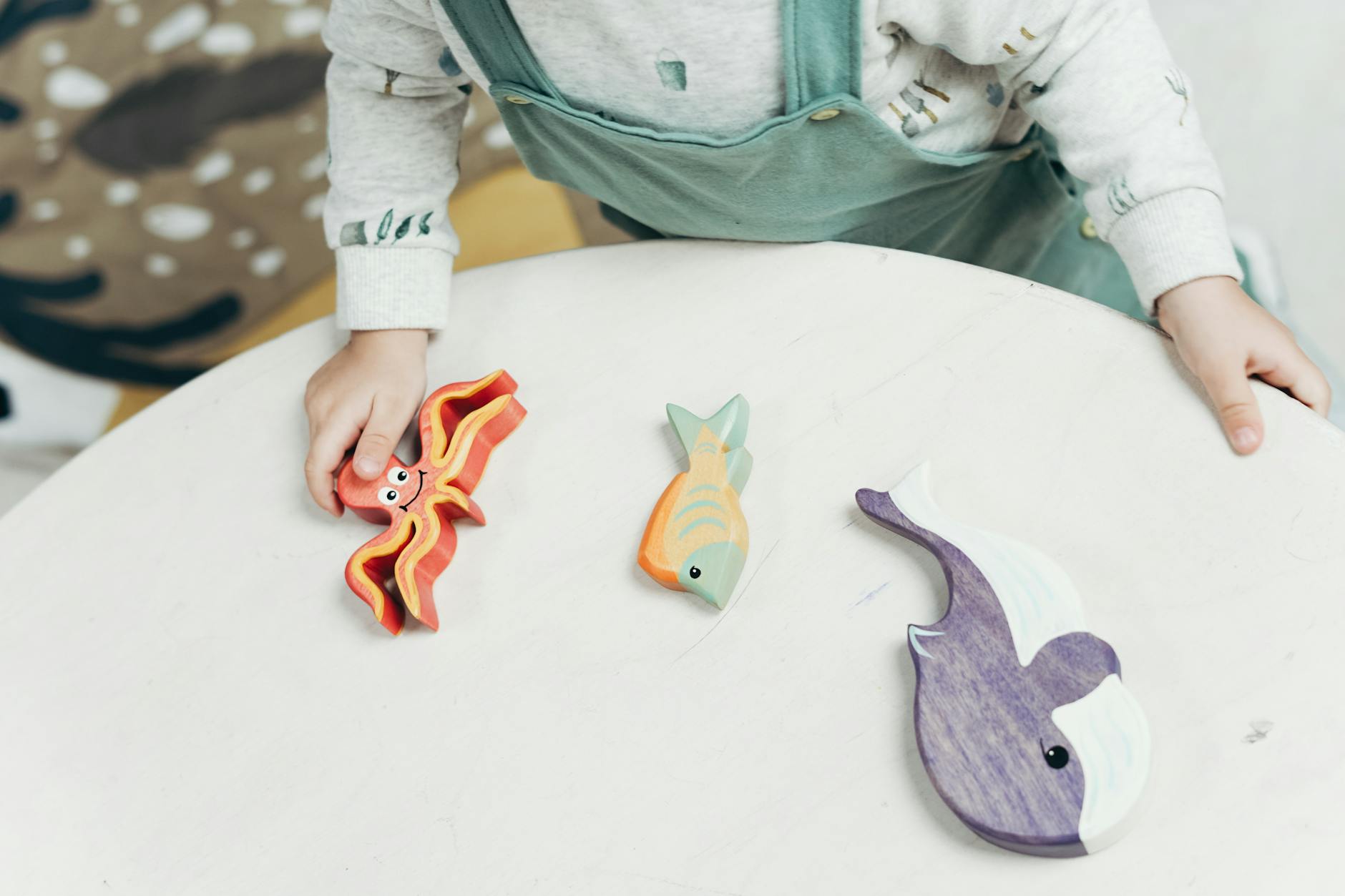How to Elevate Your Mental Health Practice in Australia

Embracing Continuous Learning
In my journey as a mental health professional, I've learned that continuous education is critical. When I attend nursing seminars at The College of Nursing in Burwood, I draw inspiration from fellow professionals who share the same dedication. Recently, I’ve also explored how foundational qualifications like the cert 3 childcare can complement mental health practices, particularly when supporting young children in early learning environments. Engaging with new research from both local and national sources, such as publications from Royal Prince Alfred Hospital, has further expanded my understanding of how interdisciplinary training enhances overall care.
Advanced courses offer an excellent opportunity for personal and professional growth. I recommend exploring mental health courses that provide flexibility and credibility, allowing them to fit seamlessly into a busy schedule. From my experience, these courses often integrate contemporary research, which can be transformative in practice. Similarly, aged care training equips professionals with the skills needed to provide compassionate, informed support to an aging population, making it a valuable complement to broader healthcare education.
In addition to formal courses, participating in aged care courses online and childcare courses online can offer different perspectives that enhance holistic care strategies. These online platforms provide valuable insights, especially when balancing work and education. It's about complementing mental health care knowledge with broader community care contexts.
By immersing myself in the wealth of information available through online webinars, I continually find new ways to apply evidence-based practices in early childhood education. TAFE NSW's continuing education workshops, for example, offer an impressive array of resources tailored to educators working with young children. These learning sessions are designed to keep professionals like us at the cutting edge of patient care, developmental theory, and classroom strategies that directly impact early learning environments.
Building Effective Patient Relationships
Enhancing Empathy Skills
Cultivating empathy in mental health practice is akin to nurturing a garden; it requires time, patience, and the right tools. My experience at the Royal Prince Alfred Hospital has shown that connecting with patients on an emotional level creates a foundation for trust and healing. Sharing personal anecdotes from my nursing experiences helps me to relate to patients, fostering an environment where they feel understood and valued. One way I've managed to refine these skills is through continuous learning avenues, like the diploma of community services, which offers insights into understanding diverse backgrounds and emotional needs.
Developing Active Listening
Active listening is a critical aspect of building effective patient relationships. It’s not just about hearing words; it's about understanding the story behind them. In my practice, I implement techniques from diploma in early childhood education programs, which emphasize attentive listening and observation as keys to assessing needs and responding appropriately. These skills have profoundly enhanced my interactions during counselling sessions and beyond.
Tailoring Personalized Care
Tailoring care to individual patient needs has always been central to my practice philosophy. Exploring aged care online courses has equipped me with strategies to personalize care based on each patient's unique history and current challenges. By respecting each individual's journey and crafting care plans that reflect this respect, I can practice more effective and compassionate care.
Navigating Healthcare Bureaucracy
Streamlining Administrative Tasks
Navigating the complexities of healthcare bureaucracy can be challenging, especially when balancing administrative tasks with providing quality care. At Royal Prince Alfred Hospital, I've witnessed how vital it is to streamline these tasks for more efficient workflow. Tools like electronic health records can automate documentation and reduce redundant paperwork, allowing more time to concentrate on patient care. Another effective strategy is regular training sessions focused on administrative skills, aimed at enhancing efficiency. This approach supports your overall goal of dedicating more time to hands-on responsibilities and active patient interaction.
Engaging with Policy Changes
Keeping up-to-date with policy changes ensures that your practice aligns with the latest healthcare standards. Being informed about these changes can sometimes feel like facing an uphill challenge; however, attending continuing education workshops at TAFE NSW or nursing seminars at The College of Nursing in Burwood can provide valuable insights into new regulations and practices. Engaging with professional networks and online healthcare forums will also keep you informed, enabling you to adapt to new requirements effectively.
Advocacy Strategies
Advocacy plays an important role in shaping the future of mental health care. By engaging with local healthcare bodies and participating in policy forums, you can influence changes that benefit both practitioners and patients. I remember a recent professional gathering where experienced nurses shared compelling stories that highlighted the impact of advocating for improved mental health services. These advocacy strategies empower you to actively contribute to improving conditions within the healthcare system.
Harnessing Technology in Practice
Implementing Digital Tools
In my experience working in the fast-paced environments of mental health care, such as Royal Prince Alfred Hospital, adopting digital tools has proven essential to efficient patient care. Technology not only facilitates smoother administrative duties but also enhances day-to-day interactions with patients. For instance, electronic health records allow us to access and update information with ease, ensuring continuity of care. The integration of scheduling apps helps manage appointments, minimising the risk of errors, and maximising time spent with patients.
Leveraging Telehealth
Telehealth has revolutionised how we engage with patients, particularly those in remote areas or with mobility challenges. I've observed a significant improvement in patient engagement since implementing telehealth solutions, allowing more flexible and consistent care. This form of digital communication helps keep mental health services accessible to everyone, regardless of location. During a child’s early developmental stages, telehealth helps overcome geographical barriers, offering support and guidance to families and educators alike.
Ensuring Data Security
As we embrace more technology, ensuring data security becomes paramount. In my daily practice, I've learned the significance of protecting patient information with robust security protocols. This involves regular training on data privacy, coding systems, and secure communication methods. With proper data protection, we secure sensitive patient data, build trust, and promote transparency in our care. Integrating these practices is vital, especially in sectors where technology and patient care intersect.
Best Practices
Keeping Pace with Research
It's imperative for healthcare professionals to stay abreast of the latest developments in mental health. I recall attending a session at the Royal Prince Alfred Hospital where insights from newly published studies were thoroughly debated—highlighting the importance of incorporating new research into everyday practice. Completing a certificate iv in mental health provided a strong foundation for understanding these developments and applying them effectively. Engaging in continuing education workshops at TAFE NSW further built on that qualification, enabling me to seamlessly integrate cutting-edge knowledge into patient care. It is indeed this kind of dedication to continual learning that refines our proficiency in navigating complex mental health landscapes.
Balancing Professional and Educational Responsibilities
Striking a balance between employment duties and furthering education is akin to maintaining equilibrium during a chaotic shift. My time at The College of Nursing in Burwood illuminated strategies for achieving this—like making the most of breaks to catch up on online webinars, and integrating learnings into our daily tasks. By cultivating a well-organised schedule, I was able to synthesise my work at busy hospitals with the pursuit of expanding my expertise, aligning both growth and practice.
Cultivating a Network of Support
To navigate the ever-evolving mental health sector, establishing a solid foundation of peer support is essential. Regular nursing seminars provide a valuable platform for exchanging experiences and insights that fuel one’s passion for excellence in patient care. I've discovered firsthand how engaging discussions at these seminars can spark inspiration and rejuvenate our dedication to elevating mental health practices in Australia. Investing in relationships with peers nurtures both professional and personal development, fostering an environment where continuous learning thrives.


